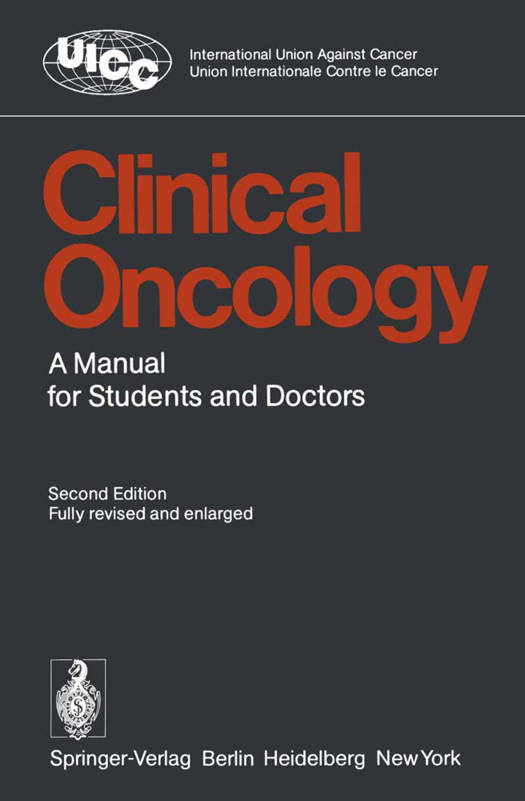
Bedankt voor het vertrouwen het afgelopen jaar! Om jou te bedanken bieden we GRATIS verzending (in België) aan op alles gedurende de hele maand januari.
- Afhalen na 1 uur in een winkel met voorraad
- In januari gratis thuislevering in België
- Ruim aanbod met 7 miljoen producten
Bedankt voor het vertrouwen het afgelopen jaar! Om jou te bedanken bieden we GRATIS verzending (in België) aan op alles gedurende de hele maand januari.
- Afhalen na 1 uur in een winkel met voorraad
- In januari gratis thuislevering in België
- Ruim aanbod met 7 miljoen producten
Zoeken
Omschrijving
The outstanding success of the First Edition and the expansion of our knowledge about cancer over the 5 years since its publication have led to the decision to publish a Second Edition which has been fully revised, rewritten and enlarged by the addition of several sections. The First Edition was translated into Italian, Japanese, Polish, and Serbo-Croat and it is expected that additional translations (French, German, Spanish, Portuguese, etc. ) will make this Second Edition a truly international basic cancer Manual. The Revision Committee is convinced that all students and general physicians should know: (a) the important basic aspects of cancer; (b) some details of the most common cancers; and ( c) a few important points about the less common cancers. An attempt has been made to strengthen Part I, General Aspects, which is considered to be the most important part of the Manual for the world's physicians. However, the most common cancers in one part of the world are not necessarily the same in other parts and it is planned to work with local groups to produce adaptations and translations as seem appropriate. In particular, the UICC is anxious to work with local, national, and international committees to help improve the educational experience of students and general physicians in the geographic areas in question. Regional Conferences held by the UICC in Latin America, Asia and the Middle East have resulted in initial plans to accomplish this aim.
Specificaties
Betrokkenen
- Auteur(s):
- Uitgeverij:
Inhoud
- Aantal bladzijden:
- 304
- Taal:
- Engels
- Reeks:
Eigenschappen
- Productcode (EAN):
- 9783540088684
- Verschijningsdatum:
- 1/09/1982
- Uitvoering:
- Paperback
- Formaat:
- Trade paperback (VS)
- Afmetingen:
- 135 mm x 203 mm
- Gewicht:
- 362 g

Alleen bij Standaard Boekhandel
+ 226 punten op je klantenkaart van Standaard Boekhandel
Beoordelingen
We publiceren alleen reviews die voldoen aan de voorwaarden voor reviews. Bekijk onze voorwaarden voor reviews.









